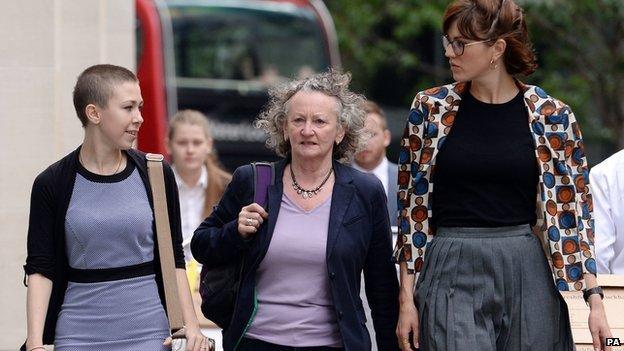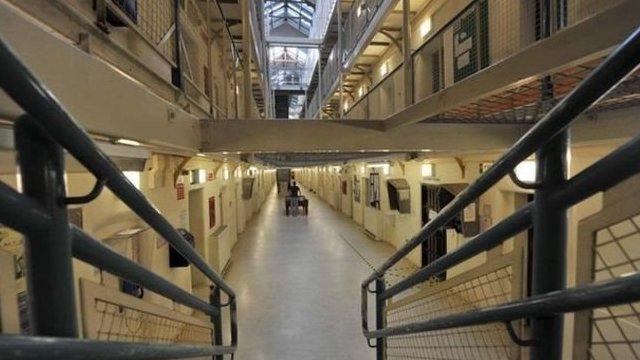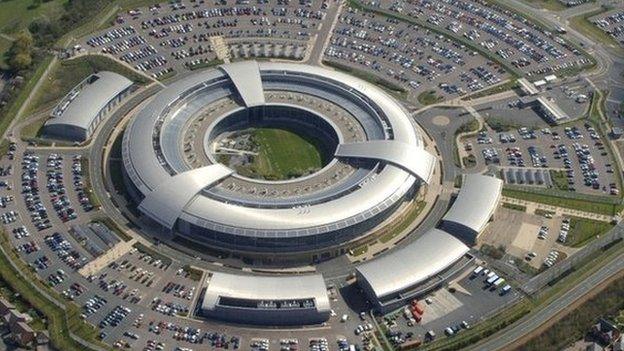Surveillance of MPs' data challenged
- Published

The intelligence services' interception of politicians' communications data is being challenged at a hearing.
Green Party politicians Caroline Lucas and Baroness Jenny Jones and former Respect MP George Galloway say a doctrine protecting MPs' communications is being breached.
Their lawyer told the Investigatory Powers Tribunal strict safeguards on the power were "an important bulwark".
The tribunal investigates complaints against the security services.
Snowden exposure
The trio say MPs' communications with the public are being intercepted as part of the Tempora mass data collection programme exposed by former US intelligence analyst Edward Snowden.
The Wilson doctrine, named after former prime minister Harold Wilson, protects MPs' phones and electronic communications, including emails.
The politicians want an independent judge to sign off any surveillance that does take place.
Counsel Ben Jaffey, who is acting for Ms Lucas and Baroness Jones, told the hearing: "The Wilson doctrine does not exclude any possibility of surveillance or intercept of MPs. Nor should it.
"MPs are human, as are judges, lawyers and journalists.
"But given their important constitutional function, strict safeguards to protect parliamentary communications are an important bulwark for the protection of the public interest."
Earlier, speaking ahead of the hearing in London, Baroness Jones said: "As parliamentarians, our job is to hold ministers to account.

Green Party politician Baroness Jones (centre) arrives at the hearing
"If our communications are subject to blanket surveillance, and people are less able to freely contact us with important and sensitive revelations, then our ability to do our job is hugely curtailed."
She said there was "a clear public interest" in protecting the communications of parliamentarians from "unnecessary surveillance".
They want to stop any attempt to "trample" on the Wilson doctrine, she said.

Prisoners' calls to MPs were deliberately monitored in "a small number" of cases, officials found
Ms Lucas said surveillance of the communications of parliamentarians "could have a deeply chilling effect on our relationship with the public".
"Parliamentarians must be a trusted source for whistleblowers and those wishing to challenge the actions of the government," she said.
"It's absolutely vital that the trust between MPs and constituents is maintained - and that people feel able to communicate freely with their representatives in Parliament."
Mr Galloway filed a separate case against the government, but this has been incorporated with that of Ms Lucas and Baroness Jones.
The hearing follows revelations of the monitoring of calls between MPs and prisoners.
Since 2006, prison staff recorded 3,150 prisoner calls to MPs, and downloaded 280 for playback - but most were listened to "in error", chief inspector of prisons Nick Hardwick said.
An inquiry earlier this month found "no evidence of a widespread, deliberate attempt" to monitor calls.
UK surveillance agency GCHQ was officially censured in February for not revealing enough about how it shares information with its American counterparts.
- Published16 July 2015

- Published6 February 2015
